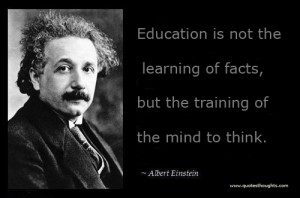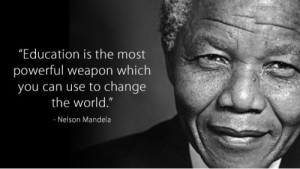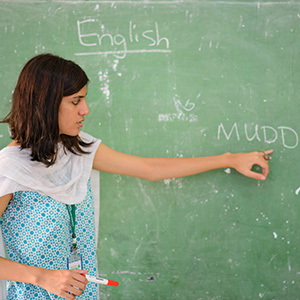Engendering change
An attempt to analyze the myriad issues confronting us today leads to a dizzy realization that the distinction between cause and effect has become totally blurred. For example, is terrorism a cause of our growing despondency, or it is an effect caused by a deeper malaise? Certainly you will have people supporting both viewpoints. This confusion, or perception variation, is perhaps spawned by the very multitude and enormity of ills overpowering society. Think of a wrong, any wrong, and we have it. To name a few, just to drive home the point – extremism, terrorism, intolerance, bigotry, polarization, parochialism, hatred, corruption, nepotism, fraud, dishonesty, exploitation, harassment, misogyny, poverty, illiteracy, malnutrition, crime …. The list is endless.
To compound the reality, each of these (and other) ills has acquired a huge quantum, while also becoming highly organized and ubiquitous. It is almost impossible to have universal agreement on which ill is the greatest. Optimism and nationalism aside, can anyone with any sense of reality deny that our society today is like a Stage 4 cancer patient? Are we becoming a failed state? Are we one already?
When did it all start? Why did it become endemic? Is there a cure for this cancer?
The genesis of our predicament dates back to the earliest days after independence. It is too complex and lengthy a subject to delve into here, but a thorough study of our history and of the forces at play throughout, will be deeply insightful for understanding when and how the disarray commenced and enlarged. If one single reason (or cause) has to be given for its burgeoning, then it has to be the sadly remarkable absence of visionary leadership throughout our history.
A society is made up of different building blocks – individual communities, institutions, corporations, CSOs, associations, families. Each building block has its own dynamics, challenges and opportunities. What is common to all, from the basic unit of the family up to the nation as a whole, is that at every level, strong and impeccable leadership is required for the unit to be progressive and harmonious. Leadership provides vision and direction, inculcates values, establishes order, sets the example, gives strength in adversity, guards against evil and brings to book errant and discordant forces.
At the basic family level, the head of the family sets the values and defines right and wrong. In a corporation, this responsibility falls on the CEO. If the leader in either of these cases is personally corrupt, inept or of evil thought, then more often than not, those being led will over time acquire the same beliefs and behavioural repertoire. Yes, there will be individuals even within a morally degenerated unit who will resist, but over time such individuals will become fewer and fewer and more marginalized within the unit.
Society must develop to an extremely high level of discipline and routine adherence to values before the role of leadership becomes almost secondary; for in such a society each individual is in a sense a leader, in terms of believing in and following the established ethical and moral standards. We are not even remotely near to this exalted state of societal development. Unfortunately every ‘leader’ who came along and was resolutely idolized, only led us up the garden path, which ended invariably at a foul and murky swamp.
…………..
Are the societal ills enumerated at the start, all effects of some other cause or causes? Or is one of these the actual cause, while the rest are effects? Ills like extremism, intolerance and hatred have to do with the mind; the result of thought-process gone wrong. So these must be effects. Other ills like exploitation, harassment and crime are actions carried out, or physical manifestations, again resulting from a flawed thought-process. So these too are effects. So what then is the cause of all these effects?
Surely it is corrupted thinking, which itself is the outcome of a mindset that has not been guided, nurtured, groomed. A mind, which in simple terms, has not been educated. So the conclusion one reaches is that the single most important cause of societal ills is the extremely abysmal level of literacy. Not literacy just in terms of basic reading and writing ability. But literacy in far more encompassing terms of being able to distinguish between right and wrong, understanding and taking on one’s responsibilities and obligations to the larger society, having a developed mind that rejects indoctrination and propaganda of exploiters, and having a yearning to do good.
Malaysia, Singapore, South Korea and Sri Lanka are just 4 Asian countries that got independence after us and started off with far lesser resources than us. Today they are way ahead of us, primarily because they chose the pursuit of literacy of their people as a top priority. We know that our successive governments have had no interest in promoting literacy. It is now really up to the intelligentsia (and if you are reading this, you are included) to take up this cause on a massive scale. It will take time and a lot of effort, but if we really want change, if not for this generation than for the next, this is the single cause that must be pursued.
Too many good people have been killed in this country by illiteracy fed hatred. If we really want to pay tribute to them, educate the people. Candlelight vigils, protests outside the press club and expression of outrage on social media may give a ‘feel-good’ glow of having done ‘something’. But these activities have never brought the killers to justice, nor have they ever engendered change.
Morality is the child of literacy, whereas evil is the illegitimate progeny of illiteracy.
Take a decision, make a difference and support education. Organizations like The Citizens Foundation, CARE Foundation, Alif Ailaan, Teach for Pakistan are doing humongous work for education in Pakistan. You can learn about them easily through their websites. Support them with donations, volunteer time, materials, whatever. And most important, spread the word – share this post and encourage as many people as you can, friends, family, colleagues, to join the effort. A huge momentum needs to be built. But first a start has to be made, however small.
In a dusty, dirt-poor village near the town of Kunri in interior Sindh, Aansoo Kohli, a lower caste Hindu young woman, crippled in one leg, is running a one-room school for about 400 kids from her village and neighbouring villages. Read about her at https://bobbhai.com/ladies-gentlemen-meet-aansoo-kohli/ and https://bobbhai.com/kunri-report/. Now if this is not inspiring, what else is?
———-
Zohare Ali Shariff is a public relations professional, trainer and writer. He blogs at www.bobbhai.com




Leave a Reply